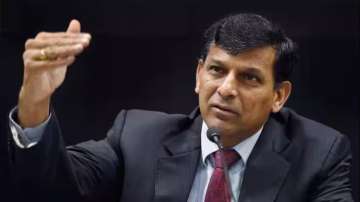Former Reserve Bank Governor Raghuram Rajan claimed that India would reach the end of the demographic dividend by 2047 (Amrit Kaal) and still be classified as a lower middle-income country if the growth rate remains at 6 per cent per year without any growth in population.
Speaking at a programme organised by Manthan in Hyderabad, Rajan said that if the nation does not expand quicker, it will age demographically before it becomes richer, meaning that there is the burden of an ageing population to deal with at that point.
What Raghuram Rajan said?
"If you do the math, at 6 per cent a year, you double every 12 years, and therefore in 24 years, we will be four times our per capita income. Today, the per capita income in India, as you know, is just a little below $2,500 per person...multiply by four, and we get $10,000 per person…So if you do the math, at our current rate of growth, you know, strong as it is highest in the G20, we don't get rich but we stay lower middle income till 2047," the economist said, as per news agency PTI.
The former RBI chief said some southern states are growing with regards to population at below reproduction rate, in other words, the fertility rate has fallen below reproduction rate thus slowing the growth.
"In other words, we will start the process of ageing at some point around that time, which leads to the alarming question if we don't grow faster, we will grow old before we grow rich, which means we all have all the burdens of an ageing population to deal with also at that point," he opined.
According to him, the current pace of growth is not enough to employ all those who are entering the labour force and insufficient to make the country get rich before it gets old.
World Bank maintains India's GDP growth forecast
The World Bank has decided to retain its GDP growth projection for India in the financial year 2023-24 at 6.3 per cent. In its latest India Development Update (IDU), a semi-annual report on the Indian economy, the World Bank noted that India has demonstrated resilience amidst a challenging global environment. Earlier this year, the World Bank had revised India's growth forecast for 2023-24 from 6.6 per cent to 6.3 per cent in its April report.
Despite substantial global challenges, the World Bank highlighted that India emerged as one of the fastest-growing major economies in the fiscal year 2022-23, with a growth rate of 7.2 per cent. This growth rate was the second-highest among G20 countries and nearly double the average for emerging market economies. The report attributes this resilience to robust domestic demand, substantial public infrastructure investments, and a strengthening financial sector.
(With inputs from PTI)
ALSO READ: 'Raghuram Rajan used false figures to...': Union Minister
Latest Business News
